As someone who dabbles in watercolour, I was familiar with Ruth Chou Simons’ stunning artistic work (have a look at her floral and lettering prints), though I never had a chance to read anything written by her. Since I’m a person who generally connects better with images than words, I was immediately drawn to the artistic beauty of her book,“Beholding and Becoming” but I was also interested in the idea of everyday worship. Ruth weaves her words and paintings together with a meditative invitation to become and behold.
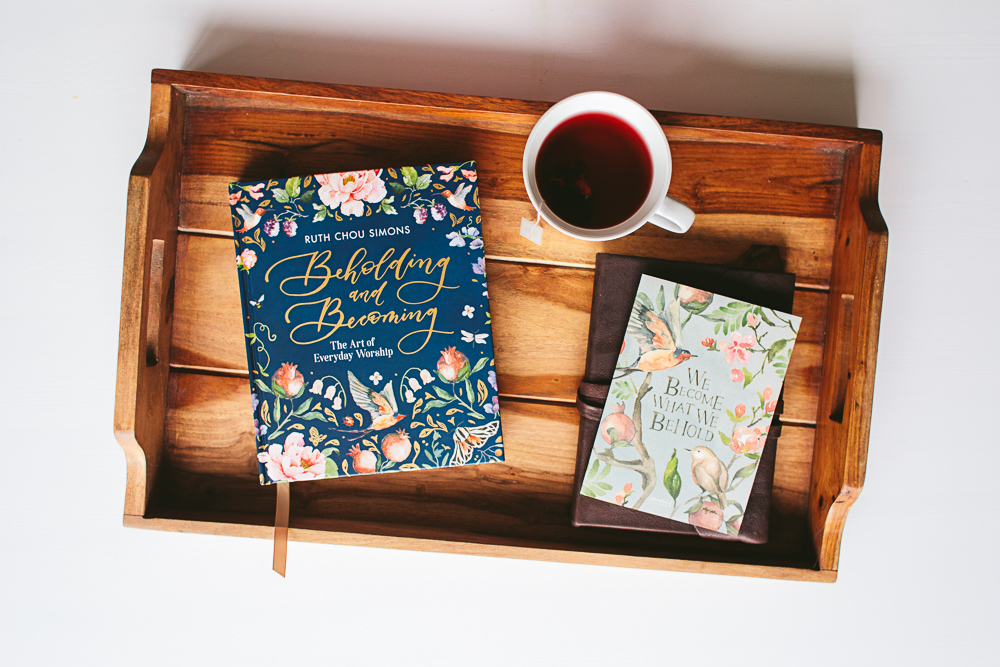
She draws on the words of William Blake, “We become what we behold,” and uses this as a launching point to behold and then become. She roots this in 2 Corinthians 3:18, “And we all, with unveiled face, beholding the glory of the Lord, are being transformed…”
Through each chapter, she reflects on who God is and how if we, “behold that” we can experience transformation by “becoming.” She then shows us how this transformation can look in our ordinary lives.
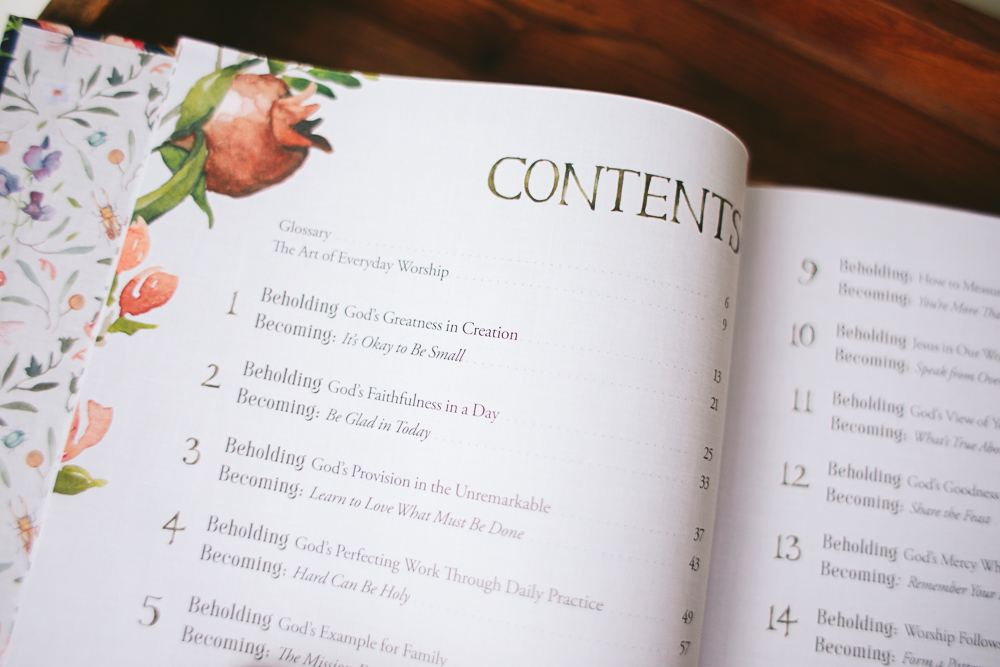
Chapter 12 is a good example of this. Ruth challenges us to behold God as provider. Guided by the story of the Exodus and God’s provision of manna, she says “Most of us don’t grumble in our spirit because we lack food, but because we lack gratitude… Our God graciously makes it possible for us to not just dine but dine with pleasure, yet so often we fixate on what it takes for us to gather. We miss the provision when we don’t behold the Provider” (159-161).
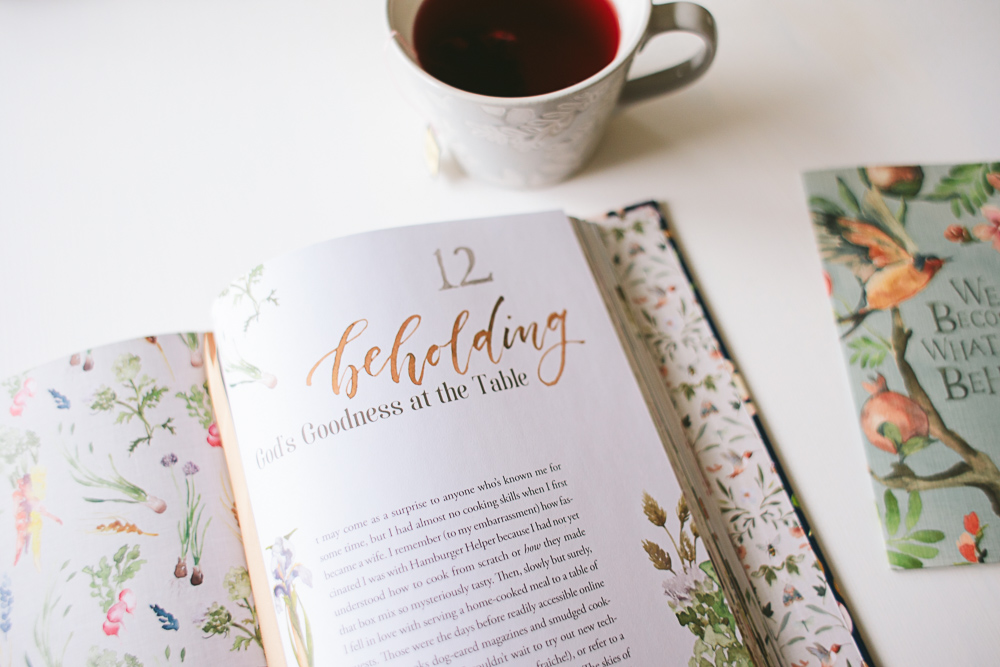
This leads to a challenge in the becoming section to offer hospitality, to share relationship around the table. Ruth says “The pressure’s off, friends. We don’t need to be chefs extraordinaire inspiring homemakers or decadent entertainers. We simply need to put our love for Jesus on display in the ordinary places of our daily lives.” (166) This is a helpful reminder for a person like me, who struggles with saying that messy hospitality is ‘good enough’ – and perhaps so are store bought donuts! She fills the book with simple truths and reminders like these.
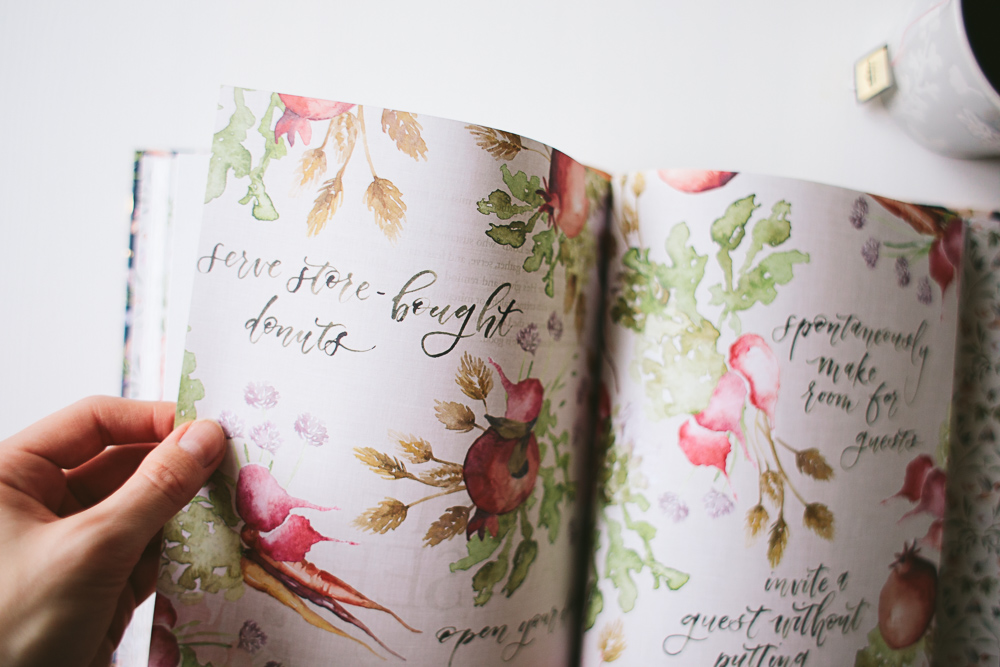
While I understand this is more of a devotional coffee table style book, I wish there was more wrestling with the complexities and nuances of the modern Christian life. It seems to offer very little commentary on the messiness of life beyond common Christian platitudes. To be fair, I’m probably not the most ideal reader based on what I enjoy reading. I think the Christian life, like art is messy.
Here are a couple ideas and quotes that stood out to me:
ABUNDANCE
“Our God operates out of plenty, but we don’t often behold Him that way.” (116)
“Jesus replaces our shame with assurance, our endless thirst with true satisfaction, our useless fillers with fullness in Christ. He makes us, who were beggars at the door, children at the King’s table – a table that overflows with the richest fare. And when we, the hungry and forgetful, come to it, we find anew that Jesus is the full measure of abundance of life.” (119)
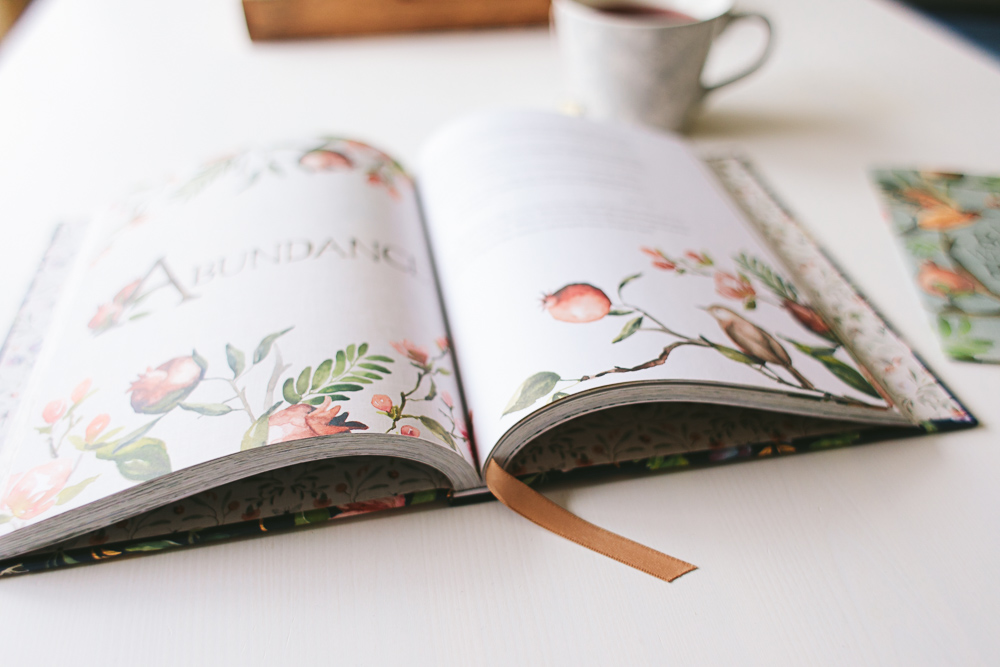
VIEW OF GOD
She restates and idea from A.W. Tozer, “It doesn’t so much matter what we say about God or what we do for Him; it’s what we truly think about God in our most inward being that affects everything about us. We are defined by what we believe about God because who we become is directly related to what we picture in our minds when we think about Him.”
If we see God as a genie, we will be wishmakers. If we picture a disappointed employer, we will think of ourselves as failing employees. If we believe He is our Abba Father, we will be His children. (144)
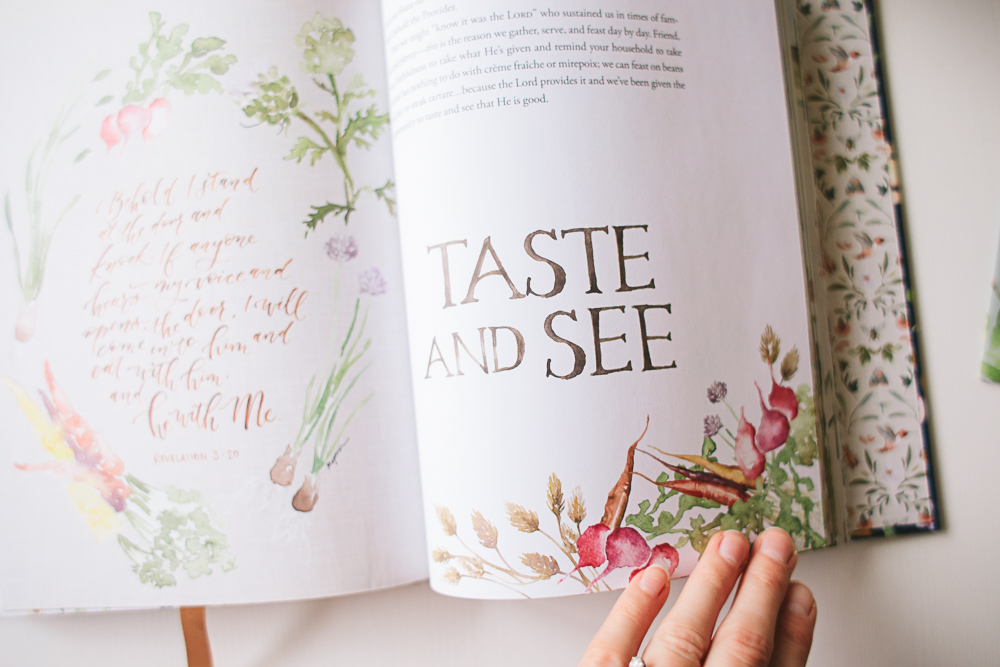
REST
“Rest is where we remember He is God and we are not. Rest is where we remember that He holds all things together without our help… We think we cant afford time to rest, but we can’t afford not to.” (199)
ABIDING
“Abiding is active – it’s a choice, and it doesn’t happen passively. Abiding may sound like a gentle concept, but [it] is a deliberate pursuit…” (216)
*Book has been provided courtesy of Harvest House and Graf-Martin Communications, Inc.